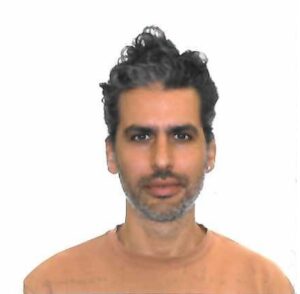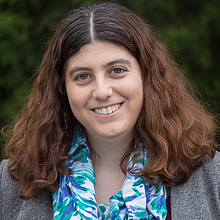We are professors, researchers, practitioners, and civil society activists aiming to improve the country’s cybersecurity posture by studying and bridging policy design and implementation gaps across public and private infrastructures.

Ido Sivan-Sevilla (founder, PhD) is an assistant professor in UMD’s College of Information and affiliate professor in the School of Public Policy. He studies the governance of digital technologies, researching the design & implementation of tech policy issues through an array of methodologies including process-tracing analysis, computational text analysis, in-depth interviews, fuzzy-set qualitative comparative analysis (fsQCA), computational web scraping and vulnerability analysis, and social network analysis. For more information, see his website or email him directly.

Charles Harry (PhD) is a senior leader, practitioner and researcher with over 20 years of experience in intelligence and cyber operations. Harry is the director of the Center for Governance of Technology and Systems (GoTech) and Associate Research Professor in the School of Public Policy. He holds a joint appointment in the College of Information Studies and serves as the operations director for the university’s Maryland Global Initiative for Cybersecurity (MaGIC) and is a Senior Research Associate at the Center for International and Security Studies at Maryland (CISSM). Harry’s research focuses on categorization and measurement of effects of cyberattack as a means of enabling policy makers to assess strategic risk and assess consequences of strategic cyber attack.

Mark McDermott is a researcher and engineer with over 15 years of experience in technical problems to include cyber security, disinformation, machine learning models, data science, and big data. Mark’s interests in technical problems are varied and diverse across a wide spectrum of mathematics, engineering, and analysis, and in domains from US defense to collaboration among international groups and partnerships.

Michelle Mazurek (PhD) is an associate professor of computer science at the University of Maryland and the Director of Maryland’s Cybersecurity Center. Her research focuses on human-centered computer security. She is interested in understanding and influencing security and privacy behaviors and preferences by collecting real data from real users. Recently she has focused on topics including making security easier for professionals such as sysadmins and software developers, understanding how and why end users learn and apply security behaviors, and investigating adoption of end-to-end encrypted messaging. She also directs the Security, Privacy, People lab (SP2) within the Maryland Cybersecurity Center.

Gabriel Kaptchuk (PhD) is an assistant professor in the Department of Computer Science with a joint appointment in the University of Maryland Institute for Advanced Computer Studies. He is a core faculty member in the Maryland Cybersecurity Center. Kaptchuk’s research centers on human-centered cryptography, aiming to revolutionize privacy-preserving systems. Departing from traditional, mathematically intensive approaches, he focuses on making cryptographic tools intuitive and accessible to users. Kaptchuk’s work spans core cryptography, developing faster algorithms for practical implementation, while also addressing policy implications and human-computer interaction.

Parthav Poudel is a Computer Science major and Cybersecurity minor at the University of Maryland, Class of 2026, and a recipient of the Department of Defense SMART Scholarship. He has gained experience through internships at The MITRE Corporation and UMD’s Applied Research Laboratory for Intelligence and Security (ARLIS), where he worked on utilizing large language models for legacy software translation and data processing projects for government clients. Parthav also conducts research at UMD’s College of Information, focusing on data infrastructure, web privacy, and misinformation outlets. He is involved in building scalable web crawling solutions and analyzing large datasets to inform cybersecurity and misinformation policy.